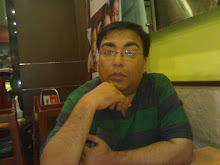Mental Illness in many societies across the globe including India is considered to be the wrath of God, a punishment for past sins and people with these problems are often shunned. Psychiatrists, are also often looked upon as 'emotionally unstable' characters lost in their own worlds. The practice of Psychiatry is considered to be 'unscientific', 'imprecise' and 'ineffective'. A study published in the Indian Journal of Community Medicine last year titled 'Beliefs and Attitudes towards Mental Health among Medical Professionals in Delhi' revealed some of these and other sorry facts.
The study was conducted in 3 medical teaching institutions in Delhi and had a sample size of 76 doctors working in these institutions. A questionnaire was used to gather information about their attitude towards mental illness, knowledge about the causes of mental ailments and the treatment modalities.
24% doctors believed that being in contact with mentally ill people may result in they behaving in an odd manner and 25% respondents said that they felt 'sorry' for a mentally sick person. 63% respondents felt that mental illnesses were solely caused by unfavourable social circumstances, while 18% attributed mental illness to 'poor diet' and 'loss of semen' (1.3%). 8% considered mental illness to be untreatable, while another 8% believed that psychiatric treatment to be more 'disabling' than the illness itself.
One obvious question that springs to mind is that if this is how educated medical professionals in a metropolis like Delhi feel about mental illness, than what would be the attitude of the society at large towards those afflicted by mental illnesses. No wonder in smaller towns and in less educated societies mentally ill are routinely ostracised, treated with derision and remain uncared for. The disease is kept under wraps as the stigma attached with mental illness is often too much for a family to bear. Some people resort to unscientific hocus pocus, tantrik cures and the like, which make matters a lot worse. Very few patients actually get to see a qualified psychiatrist and get proper care and treatment.
It is strange but large well established private hospitals (the kinds that I have been working in) do not admit patients with mental illnesses. They claim that they lack the specialised facilities required to treat such patients. However, now that I reflect on this I do wonder whether these hospitals too suffer from the same prejudices that we see in the medical professionals and society at large. While, most of them do have psychiatrists on board, they do not allow them to admit patients. About a year ago, I had a relative coming from another city who suffered from acute depression and needed admission. I turned to Dr. Samir Parikh a friend and a well known psychiatrist for help. We were at our wits end to find a good hospital, which would accept the patient. The ones Samir recommended looked woefully inadequate to me and he was just not allowed to admit patients at Max Hospitals, where he worked.
I have worked closely with Dr. Parikh, who is a young high energy individual, very passionate about his calling and none the worse for seeing close to 50 patients a day. He believes that psychiatry is as much a valid medical discipline as any other, involves treating patients with medicine and counselling. Like any other discipline some of the afflictions are incurable, some require long term continuing treatment and many are prefectly curable. He also believes that with our fast paced lives, the endless quest for 'success' and little time for self, mental illnesses are only increasing. There is an acute paucity of trained medical professionals and facilities and unfortunately not too many medical students are still willing to opt for Psychiatry as a discipline.
This is sad, as society gradually moves towards accepting mental illness as a medical problem and seeks a cure for it, we just do not have enough doctors and hospitals to go around.
Ref: Indian Journal of Community Medicine/Volume 32/Issue 3/Year 2007, 'Beliefs and Attitudes towards Mental Health among Medical Professionals in Delhi' authors Dr. Jugal Kishore, Dr. Radhika Mukherjee, Dr. Mamta Parashar, Dr. RC Jiloha, and Dr. GK Ingle, Department of Community Medicine and Department of Psychiatry, GB Pant Hospital, Maulana Azad Medical College, New Delhi, India.

No comments:
Post a Comment